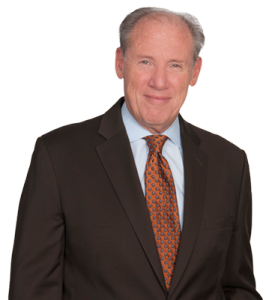 Kang Haggerty LLC is pleased to announce that Henry Donner, Of Counsel, has been selected for inclusion in The Best Lawyers in America 2018, one of the most respected peer-review publications in the profession.
Kang Haggerty LLC is pleased to announce that Henry Donner, Of Counsel, has been selected for inclusion in The Best Lawyers in America 2018, one of the most respected peer-review publications in the profession.
Donner is once again named to the list for his well-regarded construction law practice.
Best Lawyers was founded in 1983 and is published in 70 countries and all 50 states. Its methodology employs a sophisticated, conscientious, rational, and transparent survey process designed to elicit meaningful and substantive evaluations of the quality of legal services. The 24th edition of The Best Lawyers in America highlights the top 5% of practicing attorneys in the United States, based on more than 7.4 million evaluations, recognizing attorneys in 140 practice areas.
 Kang Haggerty News
Kang Haggerty News


 In the July 27, 2017 edition of
In the July 27, 2017 edition of 